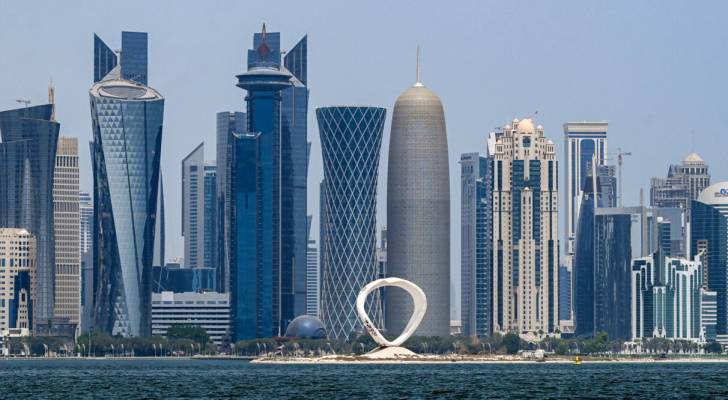Jordan and the new BRICS era
The Jordan Times
In recent years, the global trade landscape has been shifting dramatically. The BRICS nations, Brazil, Russia, India, China, and South Africa, are increasingly positioning themselves as an alternative to the Western dominated economic order. With the group expanding to include new members such as Egypt, the United Arab Emirates, and Saudi Arabia, the question arises for Jordan: should Amman look east to diversify its trade partnerships and reduce its reliance on traditional Western markets?
For decades, Jordan’s economy has been closely tied to the West. The United States and the European Union remain its largest export destinations and key providers of foreign aid. This dependence has brought stability but also left Jordan vulnerable to external shocks whether changes in aid policies, trade restrictions, or global economic slowdowns. Against this backdrop, the rise of BRICS, now accounting for nearly 40 per cent of the world’s population and an expanding share of global GDP, presents both opportunities and risks for Amman.
The decision to invite Egypt, the UAE and Saudi Arabia into BRICS marks a significant geopolitical shift. It embeds the Middle East more deeply into the bloc’s orbit, adding financial strength, vast energy resources, and some of the world’s most strategic trade routes. For Jordan, this creates a new regional reality.
On the positive side, stronger BRICS ties with its Arab neighbors could generate spillover benefits. Trilateral cooperation in logistics, renewable energy, and digital trade becomes more plausible, with Jordan’s location and political stability positioning it as a natural partner. Amman could, for instance, collaborate with Egypt on supply chains, with the UAE on investment in technology hubs, and with Saudi Arabia on energy transition projects.
Yet there are risks. Egypt, the UAE, and Saudi Arabia are larger economies with deeper resources. If Jordan does not move proactively, these countries could become BRICS’ preferred partners in the region, leaving Jordan with limited access to high profile initiatives. To remain relevant, Jordan must leverage its comparative advantages its educated workforce, modern logistics through Aqaba, and reputation for neutrality to position itself as a bridge between West and East.
At present, Jordan’s trade with BRICS members is modest. China is the most significant partner, mainly as a supplier of machinery, electronics, and consumer goods, while Jordan’s exports to China remain minimal. Trade with India, Brazil, Russia, and South Africa is even smaller. This imbalance highlights both the challenge and the opportunity: Jordan must shift from being primarily an importer to building export capacity in sectors where it holds competitive advantages.
Market diversification would reduce Jordan’s vulnerability to fluctuations in Western markets, while investment from BRICS countries could fuel growth. China and India, in particular, are investing heavily in infrastructure, renewable energy, and digital transformation worldwide. Jordan could attract foreign direct investment (FDI) into solar and wind projects, smart city initiatives, and IT services, aligning with the country’s development priorities.
Jordan has several promising sectors for engagement with BRICS. Pharmaceuticals, fertilizers, processed foods, and light manufacturing are export areas where Jordan already has expertise. Meanwhile, its young and educated workforce creates potential for partnerships in fintech, e-commerce, and digital services sectors where India and China have global leadership. Aqaba’s role as a special economic zone and logistics hub also strengthens Jordan’s case as a regional entry point for BRICS companies.
However, challenges remain. BRICS markets are competitive, with many countries vying for attention. Trade regulations, tariffs, and logistical complexities can create barriers. More importantly, Jordan’s small industrial base limits its ability to supply large scale demand from BRICS economies. Without investment in high-value industries, trade risks remaining unbalanced, dominated by imports rather than exports.
There are also geopolitical sensitivities. Deepening ties with BRICS could be viewed as drifting from traditional allies in the West, particularly the United States and the European Union. Striking the right balance will be critical diversifying without alienating longstanding partners.
To seize opportunities, Jordan must adopt a proactive strategy. Trade missions to BRICS capitals, bilateral agreements, and targeted promotional campaigns can help showcase Jordanian products and services. Negotiating tariff reductions and logistical facilitation would make trade more efficient. Positioning Aqaba as a gateway for BRICS goods into the wider Middle East and North Africa could be particularly impactful.
At the same time, Jordan needs to prioritize investment in export-oriented industries that closely match BRICS demand. Developing stronger partnerships in pharmaceuticals, renewable energy, advanced manufacturing, and IT services would significantly enhance its competitive position. Moreover, encouraging joint ventures with BRICS investors could help transfer valuable knowledge and modern technology, ultimately boosting Jordan’s long-term economic capabilities.
Diplomatically, Jordan has a unique role to play. Unlike oil-rich Gulf states, it offers neutrality and established ties with both Western and Eastern powers. This gives Amman the ability to act as a bridge, facilitating dialogue and investment between blocs. Leveraging this role could enhance both its economic and geopolitical relevance.
Western partnerships will remain vital for Jordan, but engagement with BRICS is no longer optional it is a strategic necessity. With the bloc’s expansion into the Middle East, Jordan faces a choice: risk being overshadowed by its neighbors or position itself as a complementary partner and gateway. Done right, this strategy could bring not only economic growth but also resilience, ensuring Jordan remains a pivotal player at the crossroads of established and rising economies.
Faris Al Hadidi is a banker and economist
Latest News
-
 Leaders unite against ‘Israeli’ strike on Qatar at emergency Arab-Islamic Summit
Leaders unite against ‘Israeli’ strike on Qatar at emergency Arab-Islamic Summit
-
 Gaza’s death toll rises to 64,905: Health Ministry
Gaza’s death toll rises to 64,905: Health Ministry
-
 Rubio promises Netanyahu “unwavering support” to ‘Israel’ in Gaza goals
Rubio promises Netanyahu “unwavering support” to ‘Israel’ in Gaza goals
-
 'Israeli' forces to conduct large-scale military drill across West Bank
'Israeli' forces to conduct large-scale military drill across West Bank
-
 French authorities open corruption probe into former Lebanese PM Najib Mikati
French authorities open corruption probe into former Lebanese PM Najib Mikati